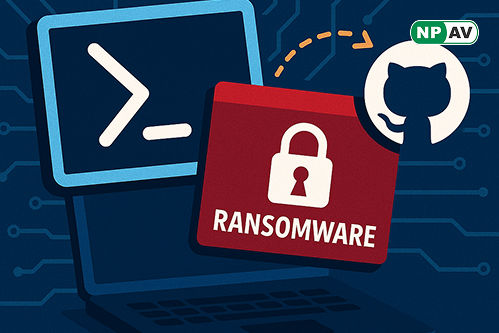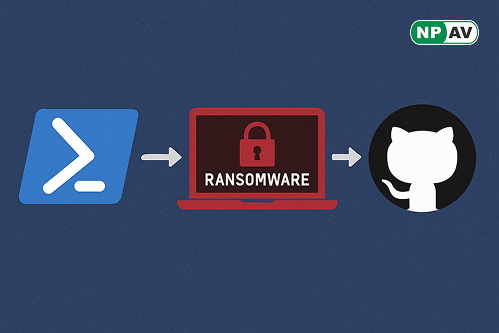PowerShell Ransomware Uses GitHub for Distribution: A New Threat Identified

The SonicWall Capture Labs threat research team has identified a new PowerShell-based ransomware variant that uses GitHub for its distribution. The malware leverages the raw.githubusercontent[.]com domain to host malicious files, including executables like decryptor.exe.


The ransomware is initially delivered via an archive file containing a malicious LNK file, likely sent as an email attachment. This LNK file, disguised as a Notepad document, points to powershell.exe and executes a PowerShell script hosted on GitHub, which contains the ransomware's core functionality.
The script targets user directories such as Desktop, Downloads, and Documents, encrypting files with a randomly generated AES key, which is then encrypted with a predefined RSA public key. It avoids encrypting critical file types to prevent system instability, appending the .ENCRYPT extension to encrypted files.


After encryption, the ransomware downloads a file named decryptor.exe from GitHub and creates a decoy text file to distract the user. It also sets up a scheduled task for persistence, executing the PowerShell script until decryptor.exe is dropped.
Victims receive a ransom note demanding $500 in Monero (XMR) for the decryption key, but paying the ransom is not recommended as recovery is not guaranteed. This threat is detected by SonicWall Capture ATP with RTDMI™.
"NPAV recommends home users and organizations to maintain strong, up-to-date cybersecurity measures. Install NPAV on your desktop, laptop, and mobile devices to ensure world-class protection against fraud, malware, and ransomware attacks.
Choose NPAV and be a part of our mission to make the digital world safer for everyone."






